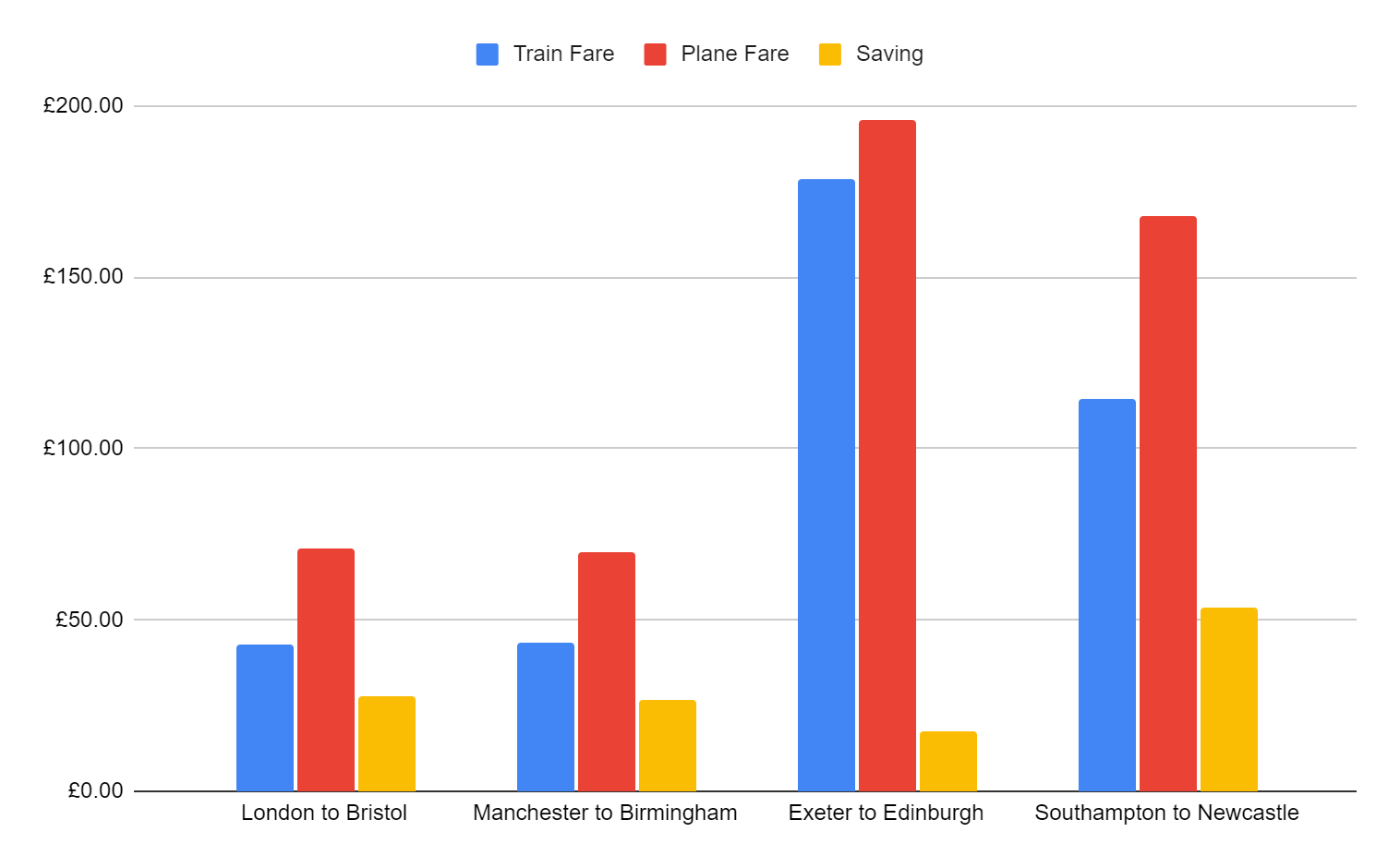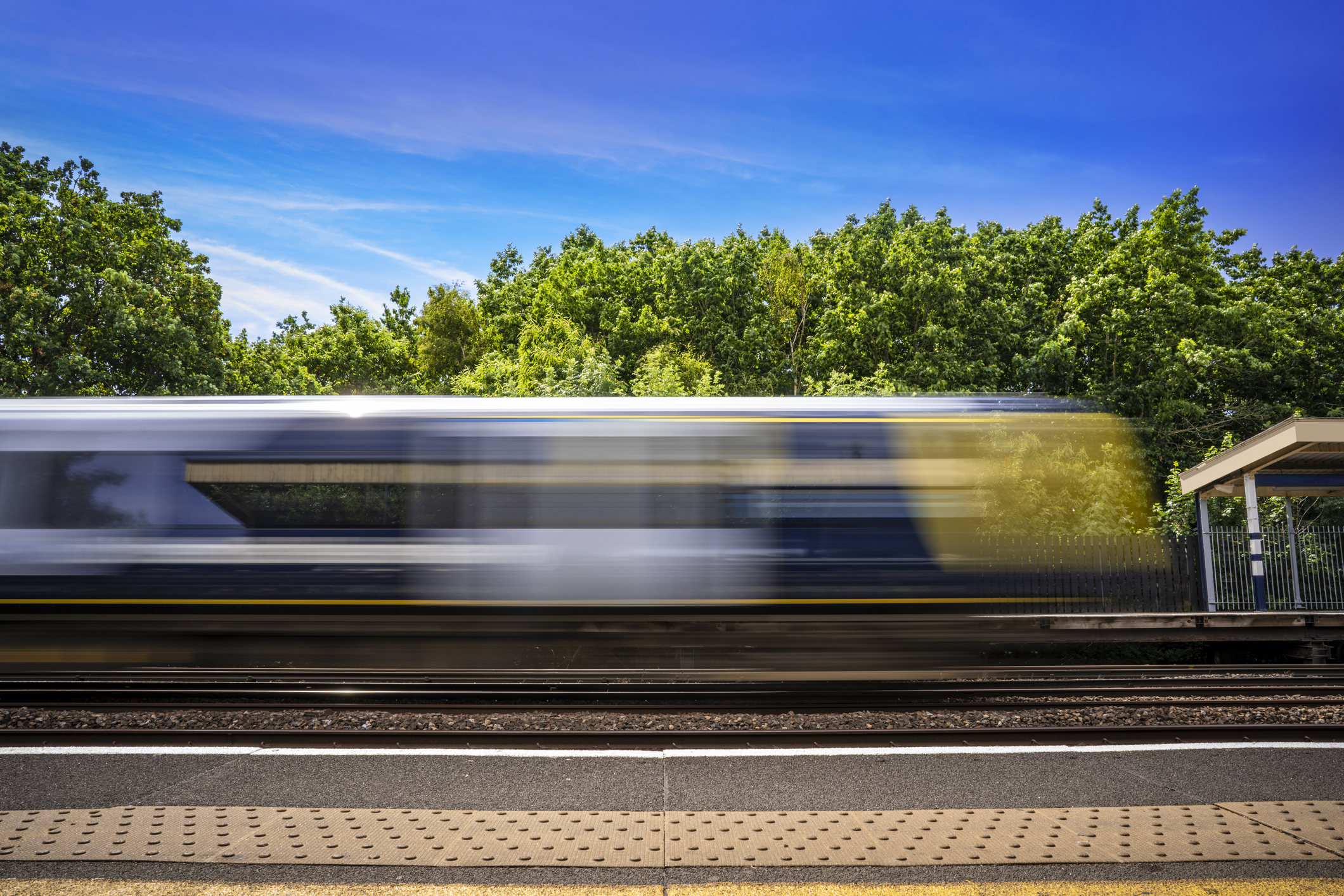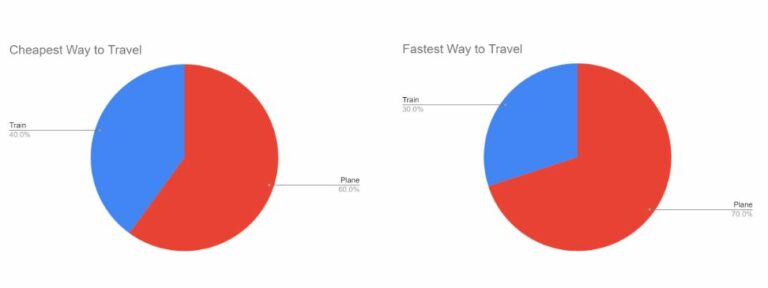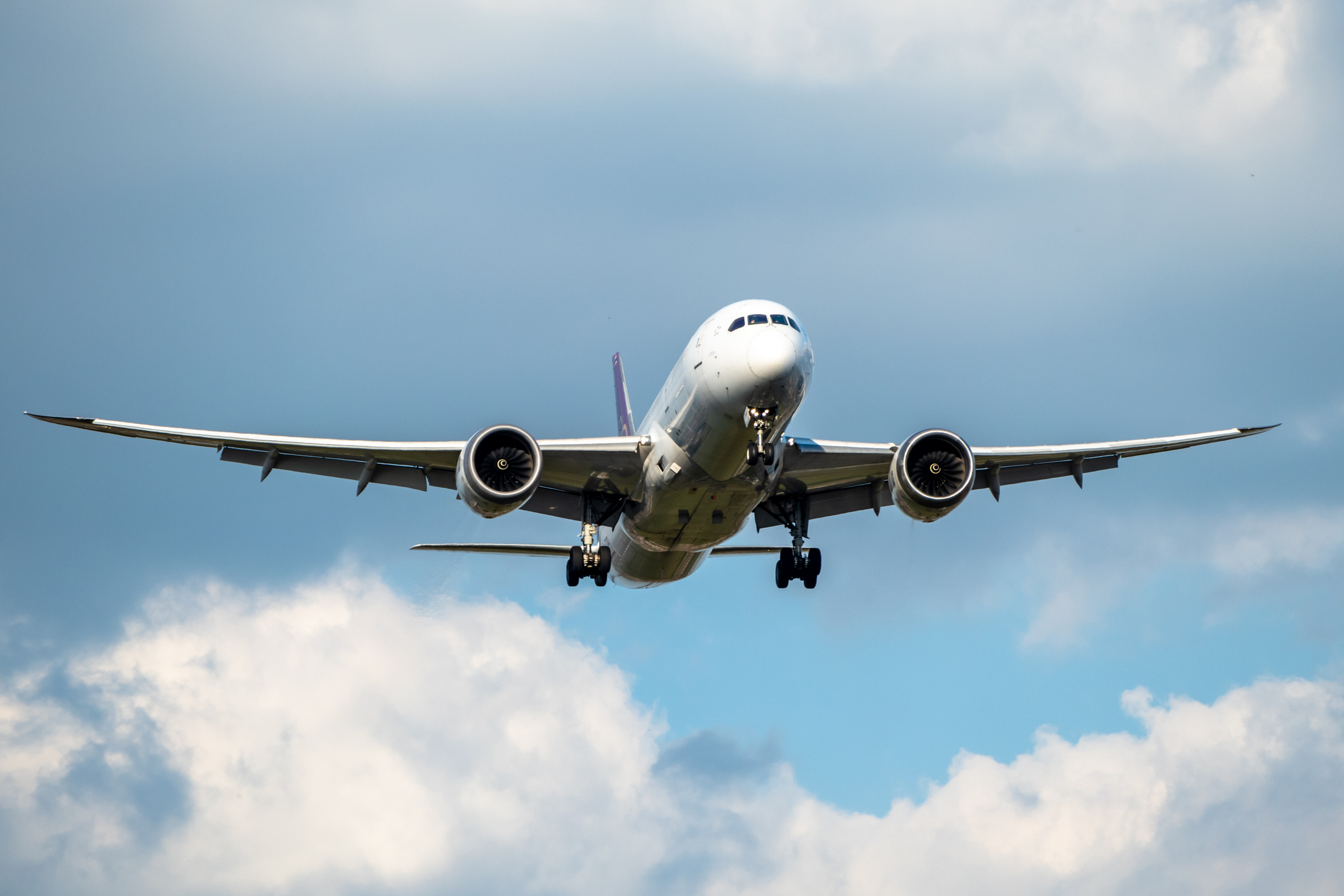Is Domestic Air Travel Cheaper than Train Travel?
Is domestic air travel cheaper than train travel? MyVoucherCodes have conducted a study to determine which mode of transport is cheapest in the UK.


Train prices in the UK are high, we all know that. Passengers can end up spending thousands of pounds every year for services that occasionally turn up late, are sometimes understaffed and are commonly overcrowded.
The general public’s consensus is that they’re getting an unfair deal. According to a Statista survey released at the end of 2021, a whopping 68% of people believe train fares in the UK to be either “fairly bad” or “very bad” value for money. In stark contrast, only 1% deem the prices to be “very good” value for money.
There is another high-speed option that passengers don’t always consider for domestic journeys, however, and that is to fly.
Is Flying Really Cheaper?
On average, yes - air travel is cheaper than train travel. A study conducted here at MyVoucherCodes selected 10 train routes within the UK and compared the cheapest possible return ticket prices to the air travel equivalent. Perhaps surprisingly, out of the routes selected six were cheaper by air (as the table below shows).

London includes all stations and airports within the Greater London area. We have selected the cheapest ticket.
Five out of these six plane journeys were not only cheaper but much faster, too. Bristol to Edinburgh, for example, was £146.00 less expensive than the train and was over four and a half hours faster. London to Glasgow saved £38.30 and was faster. While Bristol to Newcastle saved £110.30 while being a quicker journey too. However, an anomaly to this trend was the Bristol to Birmingham route; which although cheaper, took two hours longer due to a changeover.
In contrast, only four out of the ten routes were cheaper by train.

Data for this study was obtained using Skyscanner and Trainline. Return journeys were based on the cheapest ticket option possible for dates travelling between 09/01/2023 – 16/01/2023. To find the most affordable prices, some journeys involved stops and changes.
Interestingly, longer journeys from Exeter to Edinburgh and Southampton to Newcastle worked out to be less expensive on the train, and return tickets were £17.50 and £53.70 cheaper respectively. The air equivalent journey was direct for both routes. That makes this data somewhat surprising when compared to the overall findings. Shorter trips from London to Bristol, and Manchester to Birmingham were more affordable by train too.
It’s worth mentioning that direct air travel isn’t always possible between certain routes (chiefly for shorter journeys, such as London to Bristol or Bristol to Birmingham). This results in changeovers, making the process not only much longer but also more inconvenient.

Domestic Plane Travel Appears to Be Cheaper
On average, it appears domestic journeys work out cheaper by air than by train. It’s also fair to suggest that long-distance trips are where you’ll find the real savings. In fact, the data gathered shows only three of the ten routes were more time efficient when travelling by rail.
The charts below highlight the cheapest ways to travel versus the fastest ways to travel.

Is Domestic Air Travel The Answer?
On average, domestic air journeys may be cheaper and often the fastest way to travel. However, there are many factors to consider.
Air Travel is Worse for the Environment
Climate change is a particularly pertinent issue when it comes to the travel industry as a whole. Although travelling by air may be cost-effective, it’s certainly not as environmentally friendly.
A study carried out by the independent think tank The Intergenerational Foundation highlights that “the average flight within the UK emits 128kg of CO2e. This is equivalent to driving 710km in a petrol car or washing a load of laundry at 40 degrees every two days for an entire year.” They also mention that “aviation is among the most environmentally harmful modes of transportation”, and that ”travel by train is seven times more environmentally friendly than flying within Great Britain”.

Additional Costs Make a Difference
Another factor to consider is the cancellation cost, and what you can get back should you be unable to travel. Train tickets are only entirely or partly refundable if you have bought an eligible ticket (Advance tickets are non-refundable), whilst a variety of refundable and non-refundable airline tickets are available too. A perk of flying, however, is that non-refundable ticket holders are able to get money back on anything they have paid to cover Air Passenger Duty fees.
In contrast, travelling by plane can come with additional costs, such as luggage allowance add-ons and seat reservation selection. These are sometimes free with your booking. However, short-haul flights often require payment for any larger bags to be placed in the hold or for a traveller to choose the seat they wish to sit in. The prices for these selections vary, but it’s always worth double-checking the terms of your booking before committing to payment. In comparison, luggage is free to take aboard a train, whilst seat reservations don’t tend to cost any extra either.
Why Not Just Drive?
Driving or using public transport are both alternatives, although these options are better suited to shorter journeys. Excessive car use harms the environment and, according to a Statista study released in 2022, cars “are the biggest source of transportation emissions in the UK, and account for 52.42 per cent of the total emissions from this sector”. Fuel costs and the possibility of expensive breakdowns are also factors. On the other hand, the use of local public transport can become limited if you’re travelling beyond county lines.

Planes, Trains or Automobiles?
Passengers have both financial and moral decisions to make when it comes to deciding on which mode of transport to use. To fly may be cheaper, but there’s an added cost to our planet and direct routes aren’t always available. The train may take longer and be more expensive, but it is a greener and often a more convenient option.
Based on affordability alone, domestic plane travel tends to be better suited to longer, less frequent journeys, while train and car journeys are better for shorter trips and general commuting.
If you are looking to secure the cheapest possible tickets, however, it’s always worth booking them in advance. Check for out-of-season prices too, as they will often be much less during these periods. It’s also important to be mindful of any restrictive ticketing types and other add-ons before committing to payment.


Hi, I’m Jack; a Senior Copywriter on the vouchers team at Future PLC. Since joining in 2022, I’ve been crafting my money-saving skills in several areas, including tech, entertainment, sports, fitness, home and travel. You’ll usually find me here at MyVoucherCodes; updating users with money-saving hints, tips, discounts, and offers for hundreds of popular retailers. I can also be found on one of our other sites, TechRadar.
A former sports journalist and content creator, I decided to swap the press box for a permanent desk several years ago. Despite giving match reports the red card, I still enjoy attending live sporting events and I like to wind down by playing video games, visiting new places, and getting my head stuck into a good book.